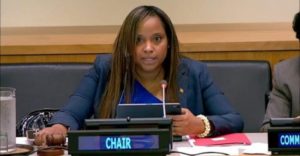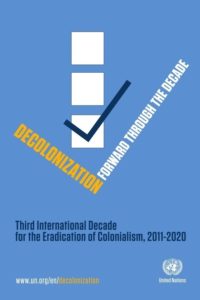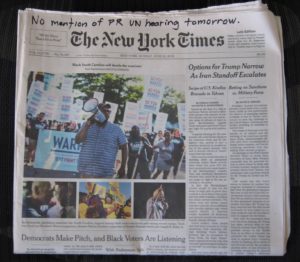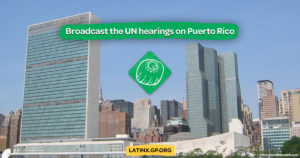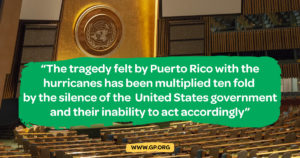By José M. López Sierra – Puerto Rico
InfoAlDesnudo
The United Nations (UN) was created after the end of World War II. Its purpose was to avoid another world war by trying to eliminate the threat to peace through dialog between nations.
The UN’s Charter of 1945 prohibits colonialism. In 1961, the UN created the Special Committee on Decolonization (C-24) to enforce the “Declaration on the Granting of Independence to Colonial Countries and Peoples” of 1960. The C-24 began work in 1962. https://www.un.org/dppa/decolonization/en/c24/about
The UN is in the last year of its 3rd international decade for the eradication of colonialism. Most people don’t know that, because the United States Government (USG) doesn’t want them to. The UN is charged with the dissemination of all information concerning decolonization. The UN, however, is not doing that. Here is the proof.
The C-24 holds an annual hearing to discuss Puerto Rico decolonization. It is usually on the Monday after Fathers’ Day. This year, it will probably be on June, 22, 2020.
The C-24 has issued, since 1962, 38 resolutions asking the USG to immediately return Puerto Rico’s sovereignty to the Puerto Ricans. The USG has willfully ignored them all.
You would expect that the UN would be broadcasting live on radio and television these annual hearings, if it really wants to eradicate colonialism. That way, the world would be aware of the efforts being made to eradicate colonialism, and people could then put pressure on the USG to do so.
To my amazement in 2012, I found out that the UN does not regularly broadcast these hearings? Does that help the UN or the USG?
We tried to get the UN to broadcast live the 2015 Puerto Rico decolonization hearing. The UN ignored us.
We decided to broadcast live the 2016 Puerto Rico decolonization hearing ourselves. The UN responded by taking me off its petitioners’ list for that year’s hearing. Click on the following link to watch our video of that hearing without my petition: https://www.youtube.com/watch?v=otzBslJLbI0
Last year, the press mentioned nothing about the Puerto Rico decolonization hearing. Why doesn’t the UN make sure the world knows about it?
A group of us asked the UN to broadcast live the 2019 hearing. The UN agreed, but only broadcasted the morning session. Why wouldn’t the UN broadcast the afternoon session too? http://webtv.un.org/watch/5th-meeting-committee-of-24-special-committee-on-decolonization/6051725003001/
Therefore, the question becomes, does the UN really want to avoid the threat to peace? Why is the UN located in the nation that the world considers the biggest threat to world peace? Is the UN just a rubber stamp for whatever the USG wants to do? https://www.indepthnews.net/index.php/opinion/3227-u-s-is-greatest-threat-to-world-peace
I disagree with the last part of the above quote. It is not the USG’s inability to act accordingly. It is its decision to not act accordingly to force more Puerto Ricans out of their national territory. It is about gentrification
Being that we are the ones who have the inalienable right to self-determination and independence, we must organize ourselves to engage in permanent resistance to force the USG to comply with international law. We do, because those who don’t respect other people’s rights, don’t believe in LIBERTY AND IN JUSTICE FOR ALL! https://www.facebook.com/groups/1697349163904877/
No, if we don’t push it.

